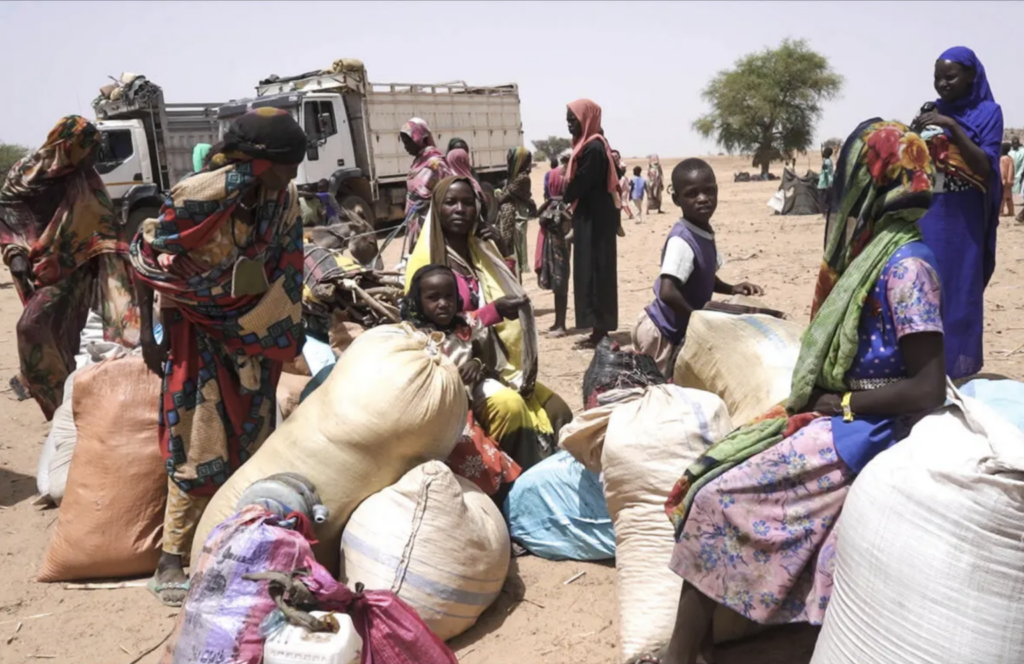Refugees International: ‘It’s Time to Speak Out on Sudan’

Darfuri refugees transported from the Chad-Sudan border to Gaga camp in eastern Chad (File photo: Insa Wawa Diatta / UNHCR)
Global leaders must not stay silent as mass killings in West Darfur reignite fears of the region’s past genocide, US-based NGO Refugees International underlines in an awareness campaign it has launched.
“In West Darfur, mass killings have reignited fears of the region’s past genocide. Global leaders must not stay silent,” Refugees International says in its campaign entitled Speak Out on Sudan
Since the current conflict erupted on April 15 between the Sudanese Armed Forces (SAF) and the Rapid Support Forces (RSF), “more than seven million people have been displaced, with nearly a million people newly displaced each month.”
The organisation also laments that “20.5 million people—almost half of Sudan’s population—are experiencing food insecurity. Six million are on the doorstep of famine.”
The current campaign calls on the Biden administration in the USA “to investigate and name the atrocity crimes that have occurred in Sudan so that those responsible may be held to account”. The NGO also appeals to the global media “to cover the conflict in Sudan with the urgency and attention that these atrocities demand”.
In an article originally published in Nation Africa, last week, Abdullahi Boru Halakhe, senior advocate for East and Southern Africa, and Ann Hollingsworth, senior director and policy advisor at Refugees International, say we cannot let Sudan starve.
‘The regions experiencing food insecurity unsurprisingly are regions experiencing the highest concentration of conflict…’
“With all eyes on the mounting catastrophe in Gaza, the world must not look away while conflict and atrocities in Sudan put the lives of millions—including children—in peril. Sudan’s conflict, now six months in, is quickly becoming a crisis of starvation. To fend off potential famine, the United States and other donor countries must urgently act. The lives of millions are at risk, and conditions are set to reverberate throughout the region,” Halakhe and Hollingworth assert.
“This tragedy of mass child hunger today in Sudan is already chilling. But without immediate action, the worst is yet to come. The Sudanese conflict also impacts food insecurity for regional countries, notably Chad and South Sudan, which rely on Sudan’s capital Khartoum—the epicentre of the fighting—as a transit hub. The conflict has destroyed the agriculture supply chain in Sudan. The three broad regions experiencing food insecurity—Khartoum state, Greater Darfur, and Greater Kordofan—unsurprisingly are regions of the country experiencing the highest concentration of conflict,” they say.
Halakhe and Hollingworth urge that unless donors step up the humanitarian and diplomatic efforts, including steps to prevent misuse of aid, Sudan and the wider region will witness more suffering and starvation. Not because of a lack of knowledge about the situation but because of a lack of political will, they conclude.
Radio Dabanga has approached the US Dept of State for comment.











 and then
and then